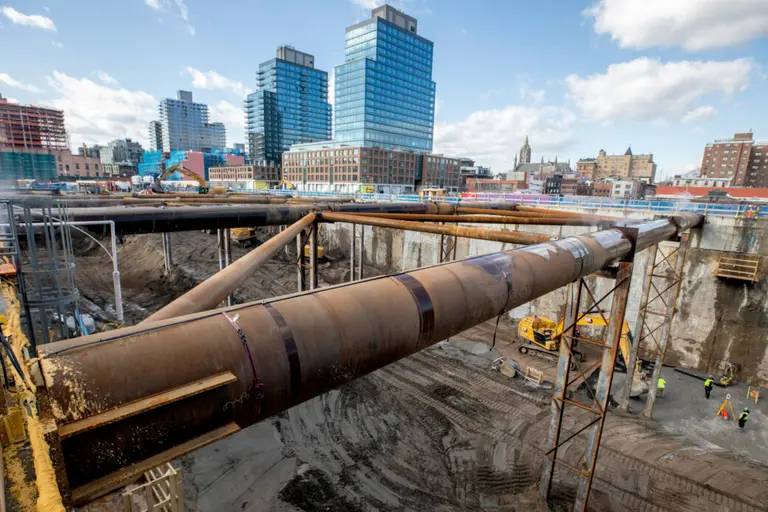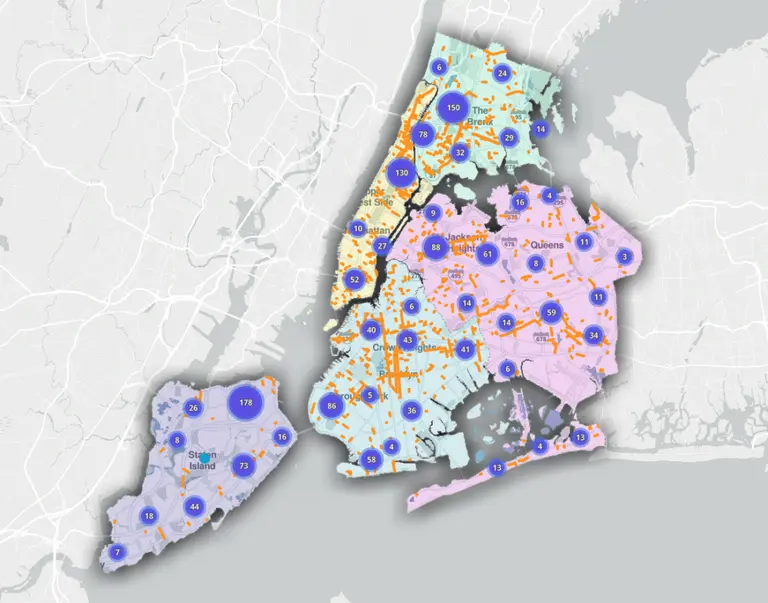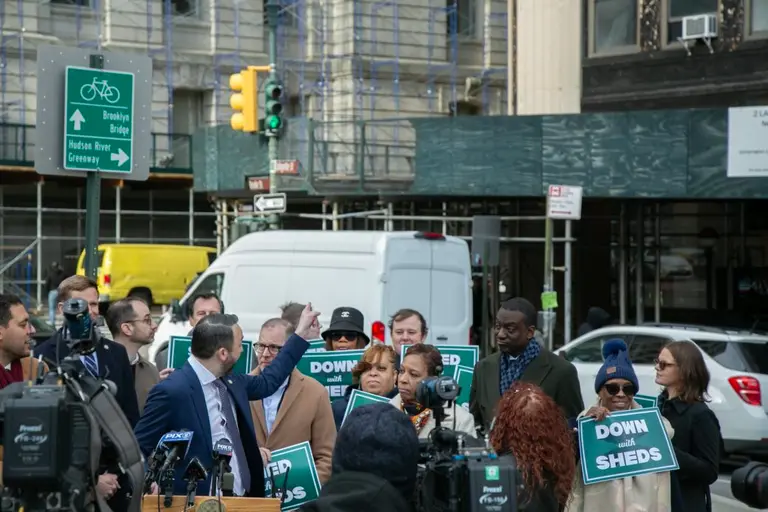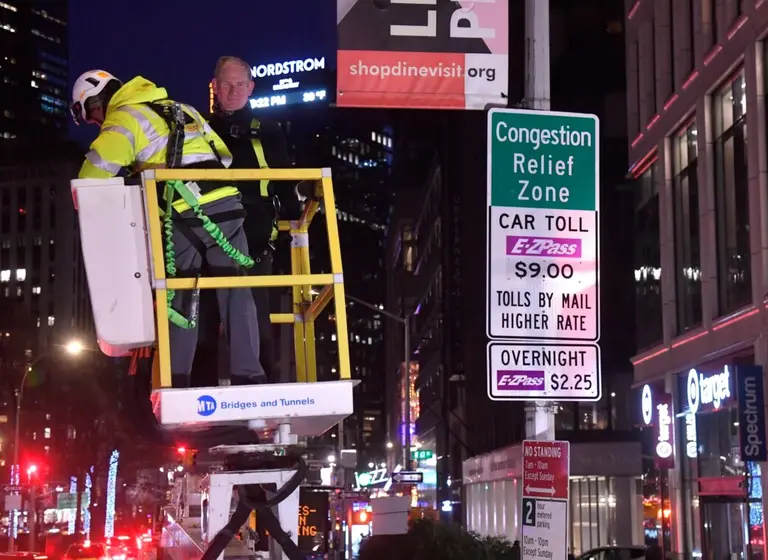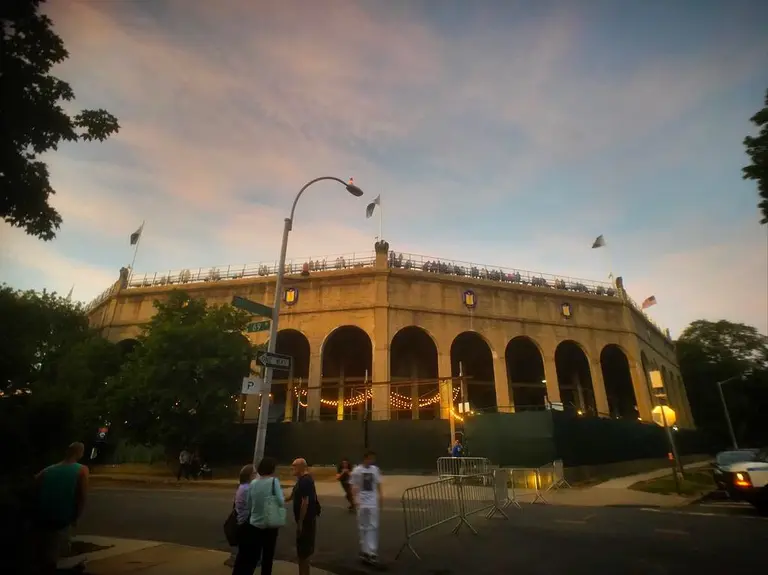NYC’s congestion pricing program gains key approval
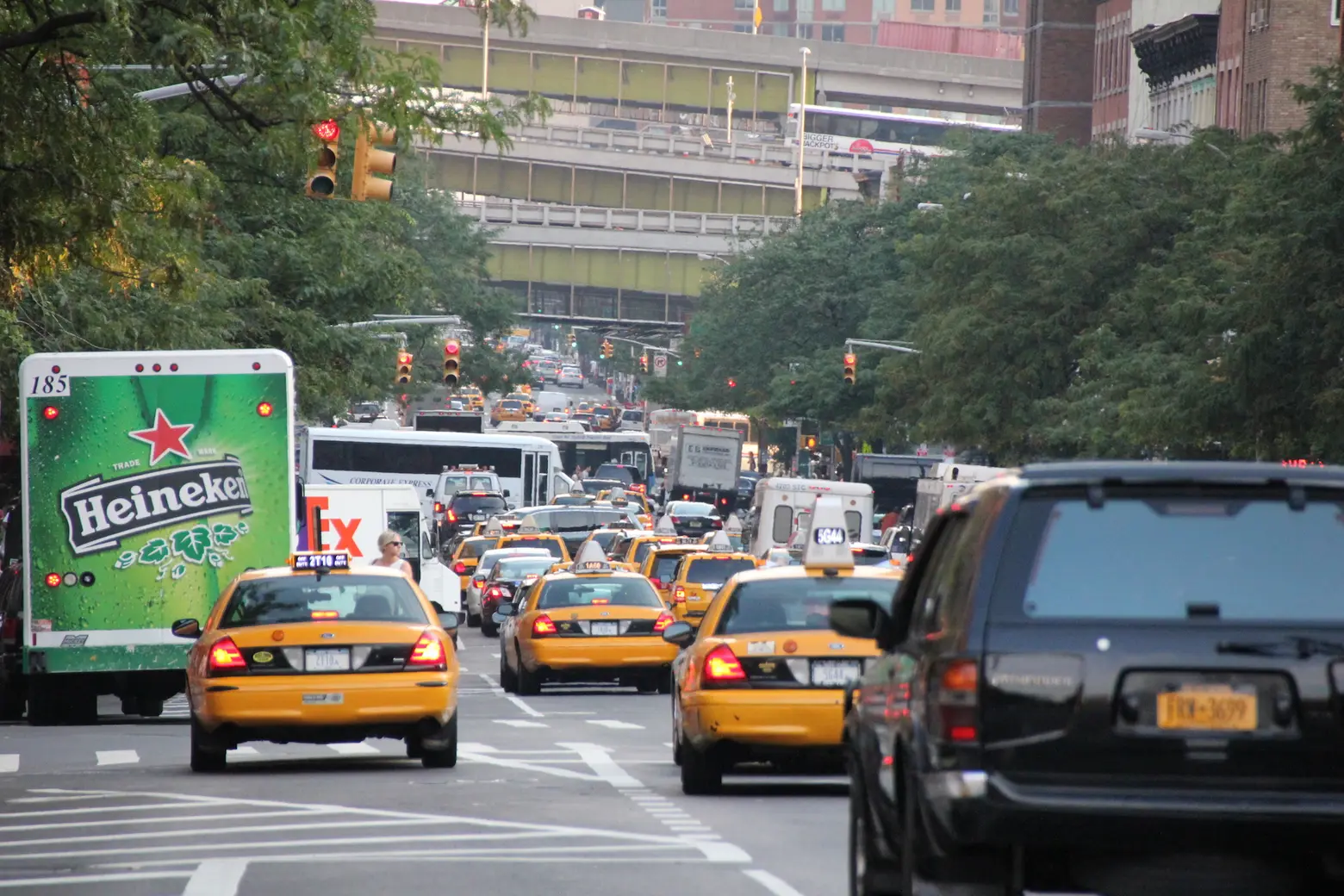
Photo by Raidarmax on Wikimedia Commons
New York City’s congestion pricing plan is finally moving forward after years of delays. President Joe Biden’s administration last week approved the Metropolitan Transportation Authority’s environmental review of their proposed Central Business District Tolling Program, which would charge drivers for entering certain parts of Manhattan at peak hours. With this initial approval from the Federal Highway Administration, a 30-day public review period is now open. The MTA said the new tolling system could launch as soon as spring 2024, as Politico reported.
The plan could cost drivers who enter Manhattan south of 60th Street during peak hours (6 a.m. to 8 p.m. on weekdays and 10 a.m. to 10 p.m. on weekends) between $9 and $23 for non-commercial vehicles and between $12 and $82 for trucks.
The costly truck fare is designed to drive truck traffic out of Manhattan’s most congested areas, with an analysis by the MTA estimating that the CBD would decrease truck traffic between 55 and 81 percent.
Before the program can be implemented, the six-member Traffic Mobility Review Board will recommend a pricing structure for the MTA to approve.
The MTA has proposed exempting drivers with disabilities and emergency vehicles from the fees. The agency also seeks to give tax credits to drivers who live in the district and make less than $60,000 a year.
In addition to reducing gridlock, officials say congestion pricing will improve air quality and make public transportation like buses more efficient. Congestion pricing would also create a new revenue stream for the city’s transit systems.
“Congestion pricing is a generational opportunity to make it easier for people to get around in, and get to, the Central Business District, by reducing traffic and funding improvements to the public transit system,” John J. McCarthy, MTA Chief of External Relations, said in a statement.
“To do it right, environmental equity has been an integral component. We are grateful that the FHWA has acknowledged the Project Sponsors’ efforts to date and has found the document has met the standards for legal sufficiency.”
A congestion pricing program was first approved by former Gov. Andrew Cuomo in 2019 as part of the state’s $175 billion fiscal year 2020 budget deal.
Following the program’s approval, New Jersey Gov. Phil Murphy voiced concerns about the plan, fearing it would be unfair to Garden State residents who commute to the city. Murphy said an increase in the number of commuters would put a strain on the state’s bus, rail, and PATH systems, without the chance to benefit from the $1 billion in added revenue that the congestion pricing program is expected to generate.
“Everyone in the region deserves access to more reliable mass transit, but placing an unjustified financial burden on the backs of hardworking New Jersey commuters is wrong,” Murphy said in a statement at the time. “Simply put, it is a money grab.”
According to the New York Times, Murphy called the latest federal approval “unfair” and said he is considering “all legal options.”
The MTA released its highly-anticipated environmental assessment of the CBD in August 2022 after years of delays due to political infighting between former President Donald J. Trump and New York, according to Politico. MTA officials claimed that the former president held up the process in retaliation for former Gov. Andrew Cuomo’s refusal to give driver’s license records to federal immigration authorities.
RELATED:
